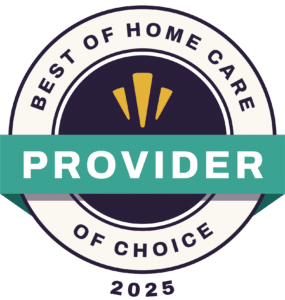Care Management
Introduction to Care Management
Care management by Vibrant Health Homecare plays a key role in supporting families and individuals facing complex health and daily living needs. For elders and those with chronic conditions, the right care management plan can ensure that daily needs are met while keeping healthcare organized and effective. Our community is growing in demand for care management services that bring personalized support to the people who need it most.
What is Care Management?
Care management refers to the organized approach of coordinating and overseeing the health, daily needs, and social services of individuals who require extra support.
For seniors, this type of assistance can help bridge gaps in care, ensure medications and treatments are managed properly, and keep family members informed.
While elder care management shares similarities with home health care, it is unique because it emphasizes a big-picture approach, with a focus on bringing together medical, emotional, and daily living needs under a single, organized plan.
Care management helps in managing transitions between care providers and addresses more than just basic day-to-day tasks. It takes into account a person’s medical history, ongoing healthcare needs, and personal preferences, offering a truly supportive service for both the individual and their family.
Top Care Management Providers
Experience and Professionalism
Range of Services
Personal Connection and Compassion
Vibrant Health Homecare provides Care Management Services in Tacoma, University Place, Spanaway, Fircrest, Lakewood, Milton, Fife, Edgewood, Puyallup, Bonney Lake, and surrounding areas in Washington.

Key Components of Effective Care Management
Personalized Care Planning
Coordination of Services
Advocacy and Family Support
Financial and Insurance Navigation

Additional Resources for Families and Caregivers in Tacoma
Tacoma has several community resources designed to support both caregivers and those receiving care. These programs, often available through government or non-profit agencies, provide valuable assistance:
- Washington State Department of Social and Health Services (DSHS): DSHS offers a variety of caregiver resources, including support groups, educational materials, and respite care options for family members.
- Tacoma-Pierce County Health Department: This organization provides public health services, along with information on local senior programs, community centers, and wellness resources.
- Pierce County Aging & Disability Resources: This agency connects families with services like transportation assistance, meal delivery, and personal care options tailored to seniors.
How to Choose the Right Care Management Provider
Selecting the right care management provider is a significant decision. Here are some practical steps to guide your choice:
- Assess Your Needs: Start by listing the specific types of support you or your loved one needs. Is it primarily medical coordination, daily assistance, or advocacy? Knowing your top priorities helps narrow down your options.
- Evaluate Provider Quality: Look at credentials, reviews, and any professional affiliations a care manager may have. This gives insight into their qualifications and reputation.
- Ask Key Questions: During consultations, ask about the services they offer, any experience with conditions like dementia or chronic illness, and how they communicate with families. It’s also wise to inquire about flexibility in care plans and what happens if needs change.
- Compare Costs and Insurance Options: Understanding the financial aspect is essential. Discuss payment options, insurance coverage, and whether they provide guidance with financial planning and cost management.







